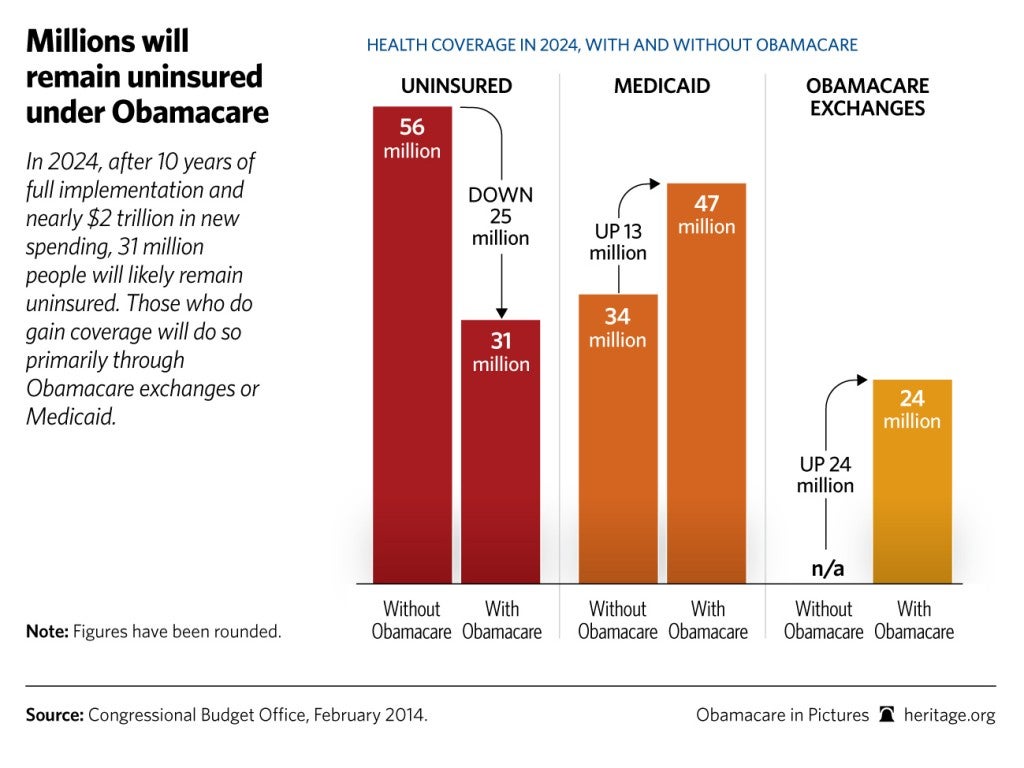After a full decade of Obamacare’s implementation, the latest projections from the Congressional Budget Office (April 2014), estimate that after spending over $1.8 trillion on Obamacare provisions, in 2024, 31 million people will remain uninsured.
The changes in insurance coverage due to the Affordable Care Act, compared to projections of what would have existed without the law, in 2024, are as follows:
+25 million purchase coverage in the exchanges, 19 million of whom are expected to receive subsidies
+13 million gain coverage through Medicaid/Children’s Health Insurance Program
-7 million in the employment-based coverage
-5 million fewer individuals purchase individual coverage directly from an insurer
= A net reduction in the uninsured of 26 million, leaving 31 million uninsured in 2024.
Worse, half of Obamacare’s reduction in the uninsured is projected to come from adding 13 million people into the poor-performing, government-run health program, Medicaid. Obamacare expands the program despite its well-documented history of poorer health outcomes and limited access for beneficiaries.
Moreover, these coverage changes obviously mean that government’s role in health care and its financing are expected to significantly grow. Indeed, the CBO projects that the gross cost of spending on exchange subsidies and related spending combined with increased federal spending on Medicaid will be over $1.8 trillion from 2015-2024.
Spending even more money on new government entitlements, when the existing entitlements are unsustainable and in desperate need of reform, is the opposite of what was needed to fix the current health care system.























